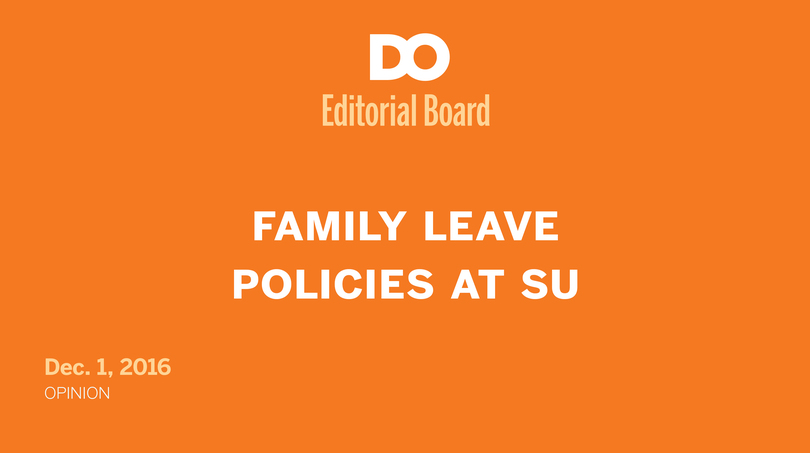SU should consider adding paternity leave to tenure-track policies

/ The Daily Orange
The nuances of family leave — which professors get it, how much they’re paid, how long they can take off — have consistently been up for debate. But the discussion was recently rekindled with Donald Trump’s proposal of a paid family leave plan under his administration.
On the Syracuse University Hill, family leave policies at SU can be made more inclusive with the introduction of paternity leave. SU’s current leave policies consist of maternity leave — which is for tenure-track women professors who are expecting — and parental leave. Maternity leave can be combined with a subsequent parental leave for a full semester off with pay. Paid parental leave, not combined with maternity leave, is restricted to full-time tenured or tenure-track professors who become a primary parent through childbirth or adoption.
Given the reputation of universities as institutions of change, SU is poised to be on the forefront of progress and should be by prioritizing tenure-track professors. Often, adjunct professors will either have more time outside of the university to take care of their child or have more than one job in the equation. From SU’s standpoint, it would also be more efficient to work on improving current policies before potentially spreading them thin.
Putting consideration into offering paternity leave would enable SU to take a healthy risk — one that is beneficial to both the parent and the child. In a larger framework, SU’s inclusion of paternity leave would be groundbreaking in destigmatizing the practice.
Vice Chancellor and Provost Michele Wheatly has particular experience in this area. Before coming to SU, Wheatly made changes to West Virginia University’s family leave policy as WVU’s provost in 2010. At WVU, she decided to extend family and medical leave to non-tenure track faculty.
Now that Wheatly is completing her first semester on campus, she likely has a firm understanding of how the school works. And her track record reflects that she would be strong resource should SU move forward with the consideration of tweaking its rules.
Leave policies are inherently a reflection of an institution’s attitude toward its employees. And regardless of what’s advised on a national level, universities have the power to lead by example and tailor leave policies to their own environments — an opportunity SU is not at all exempt from and should embrace.




